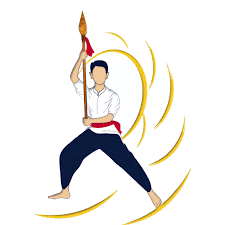
Historical Roots
Silambam has deep historical roots, dating back over 2,000 years. References to Silambam can be found in ancient Tamil literature, including the Sangam literature, where it is celebrated as a key aspect of Tamil martial tradition.
Preservation of Tamil Heritage
Silambam is more than just a martial art; it is a living tradition that has been passed down through generations. Practicing Silambam is a way to preserve and honor Tamil heritage, keeping alive the customs and knowledge of the ancestors.
The techniques, rituals, and even the language used in Silambam training sessions are deeply rooted in Tamil culture. This makes the art form a cultural repository, preserving elements of Tamil language, poetry, and folklore.





